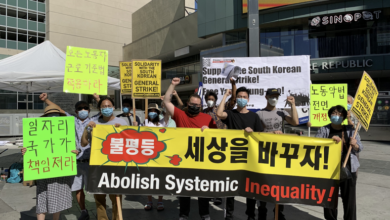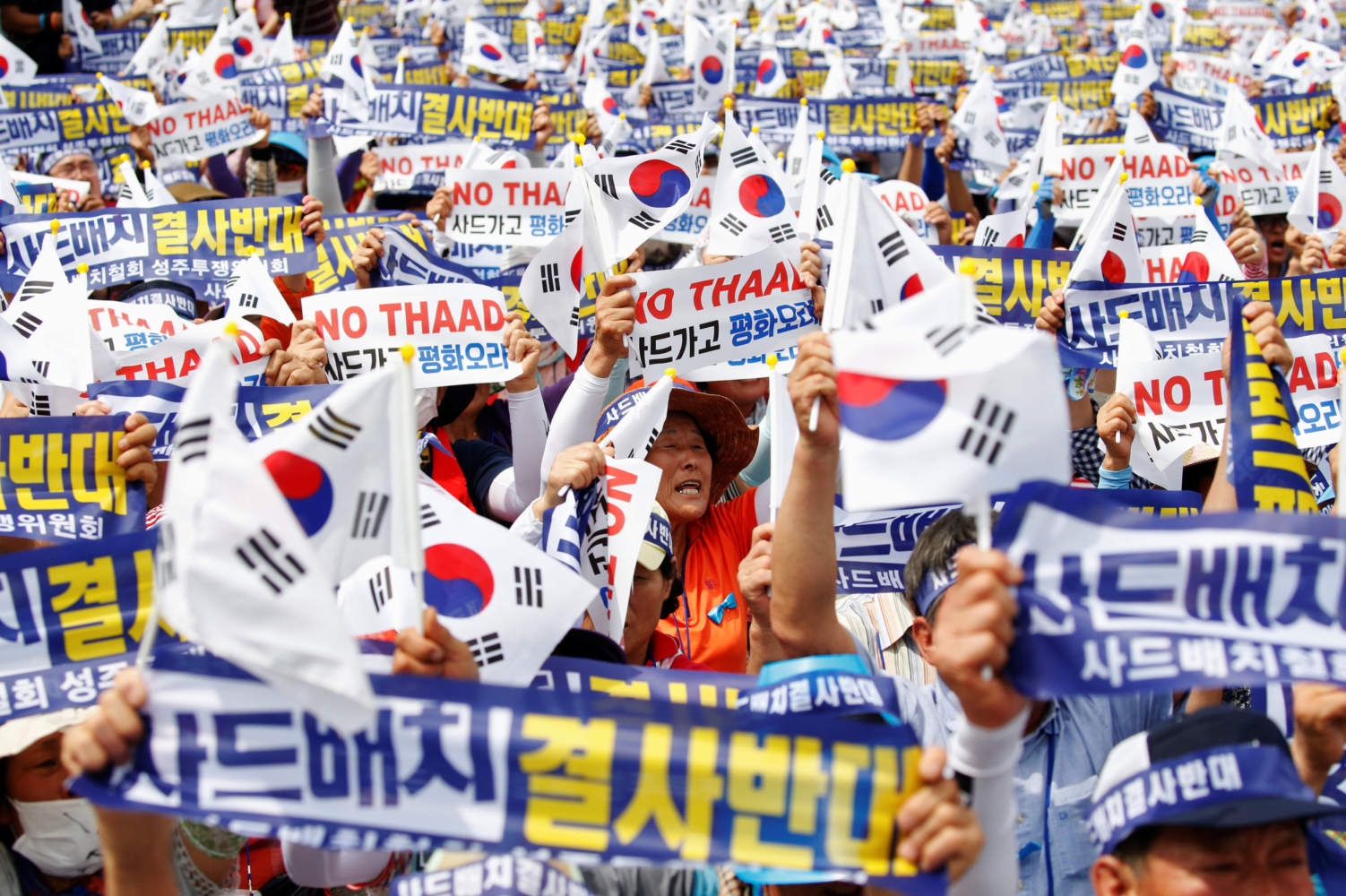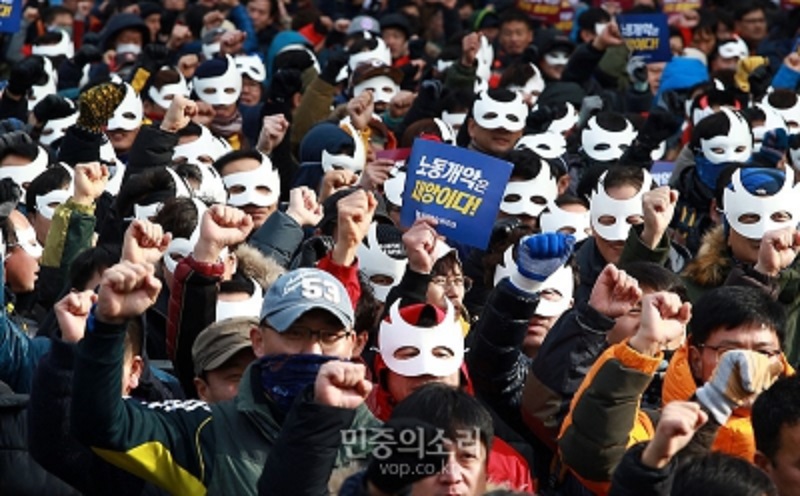According to the Environment News Service , hundreds of police attacked protesting villagers on Jan. 18 in Jeju-do, or Jeju Island—the only special autonomous province of South Korea. The protesters were opposing the construction of a Korean naval base on the island.
 |
Lying in the Korean Strait with quick access to South Korea, Japan and China, Jeju-do is the largest island of South Korea, sitting south of the peninsula. It is known as an “eco-paradise.” The naval base is being built near coral and lava tube caves listed on the World Heritage List by the United Nations Educational, Scientific and Cultural Organizations. It is also near the Gangjeong stream, site of the cleanest water on the island, where water is scarce.
The naval base will be home to U.S. and South Korean Aegis Combat Systems, which are produced by Lockheed Martin to track and guide weapons. South Korean Navy officials say the base will be able to accommodate 20 warships and two 150,000-ton cruise liners. Demonstrators say it will be used to surround China’s coast, according to ENS.
Protesters barricaded the site with cars and climbed up construction cranes but were dragged off by police. The police arrested 47 people, including priests and the mayor of Gangjeong. A 70-year-old man suffered a head injury when he was pushed by a police officer, after telling the officer to stop pushing an elderly woman.
The clash is a striking example of U.S. neocolonialism. The Korean people of Jeju-do are being violently forced to endure the theft of their land and a cultural landmark to serve the interests of U.S. foreign policy and the ruling class of South Korea.
The government of South Korea operates as a proxy of U.S. imperialist interests. This relationship traces back to the end of World War II, when the U.S. military replaced Japan as the occupying force of the southern half of the Korean Peninsula as a launching ground in its offensive against the Soviet Union and the spread of socialism around the world.
The U.S.-led invasion of Korea in 1950 killed or wounded more than 4 million Koreans, most of them civilians. Five million Koreans were made refugees. Thirty-six thousand U.S. soldiers died.
Twenty-nine thousand U.S. troops are still stationed in South Korea today, posing a constant military threat to the North. These troops are the biggest barrier to reunification and demonstrate the extent to which the South Korean government, military and society are beholden to U.S. imperialism and Western finance capital. Following the Asian financial crisis in the late 1990s—or the “IMF crisis,” as it is known in South Korea—and the presidential election of ultra-conservative Lee Myung-Bak in 2008, the neocolonial relationship has been strengthened.
The Party for Socialism and Liberation stands with the people of Jeju-do and all oppressed peoples around the world who are resisting the U.S. offensive in all of its forms. We fully support the people of Korea, North and South, in their struggle against the artificial division of their nation by U.S. imperialism and for reunification of their country.





